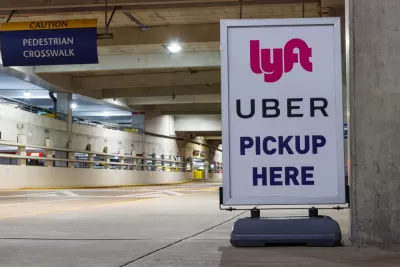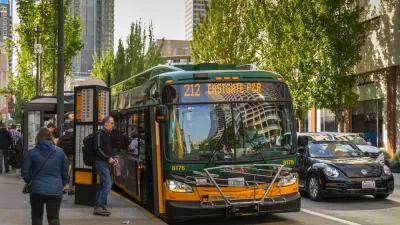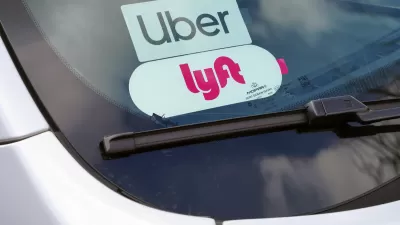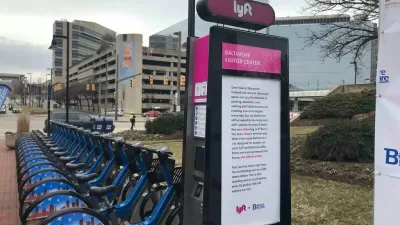High prices, labor issues, and legal blunders plague the transportation network companies, who are increasingly shifting to deliveries over rides.

In an article for Streetsblog Massachusetts, Christian MilNeil describes the state of transportation network companies (TNCs) in the Bay State. “In the two years leading up to the pandemic, ridership on Uber and Lyft had been growing explosively; an analysis of the companies’ own data estimated that their drivers logged a staggering 23 to 25 million miles in the City of Boston – roughly 8 percent of all the city’s traffic – during the month of September 2018.”
Now, more than two years after the pandemic began, ridership on these services has not recovered. “Like the state’s transit agencies, Uber and Lyft have reportedly struggled with driver shortages, and customers are reporting longer wait times and higher prices. During the pandemic, substantial numbers of its drivers also pivoted from transporting passengers to transporting take-out meals and other deliveries.”
MilNeil writes that “The company’s reported gross revenue from passenger bookings in the last three months of 2021 was down by 16 percent compared to the same period of 2019 (from $13.5 billion in 2019, to $11.3 billion in 2021), in spite of considerably higher prices.” Meanwhile, the “value of the company’s bookings from deliveries in the same time period had more than tripled (from $4.4 billion in 2019 to $13.4 billion in 2021).”
Uber and Lyft are also recovering from an expensive legal loss after the Massachusetts Supreme Judicial Court ruled that a ballot initiative proposed by the companies that sought to emulate California’s 2020 referendum classifying drivers as independent contractors was illegal.
FULL STORY: Uber and Lyft Ridership May Be Faring Even Worse Than Transit

Maui's Vacation Rental Debate Turns Ugly
Verbal attacks, misinformation campaigns and fistfights plague a high-stakes debate to convert thousands of vacation rentals into long-term housing.

Planetizen Federal Action Tracker
A weekly monitor of how Trump’s orders and actions are impacting planners and planning in America.

Chicago’s Ghost Rails
Just beneath the surface of the modern city lie the remnants of its expansive early 20th-century streetcar system.

Bend, Oregon Zoning Reforms Prioritize Small-Scale Housing
The city altered its zoning code to allow multi-family housing and eliminated parking mandates citywide.

Amtrak Cutting Jobs, Funding to High-Speed Rail
The agency plans to cut 10 percent of its workforce and has confirmed it will not fund new high-speed rail projects.

LA Denies Basic Services to Unhoused Residents
The city has repeatedly failed to respond to requests for trash pickup at encampment sites, and eliminated a program that provided mobile showers and toilets.
Urban Design for Planners 1: Software Tools
This six-course series explores essential urban design concepts using open source software and equips planners with the tools they need to participate fully in the urban design process.
Planning for Universal Design
Learn the tools for implementing Universal Design in planning regulations.
planning NEXT
Appalachian Highlands Housing Partners
Mpact (founded as Rail~Volution)
City of Camden Redevelopment Agency
City of Astoria
City of Portland
City of Laramie





























